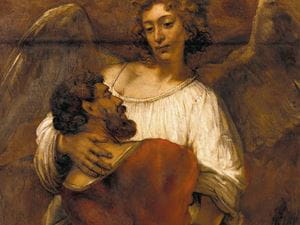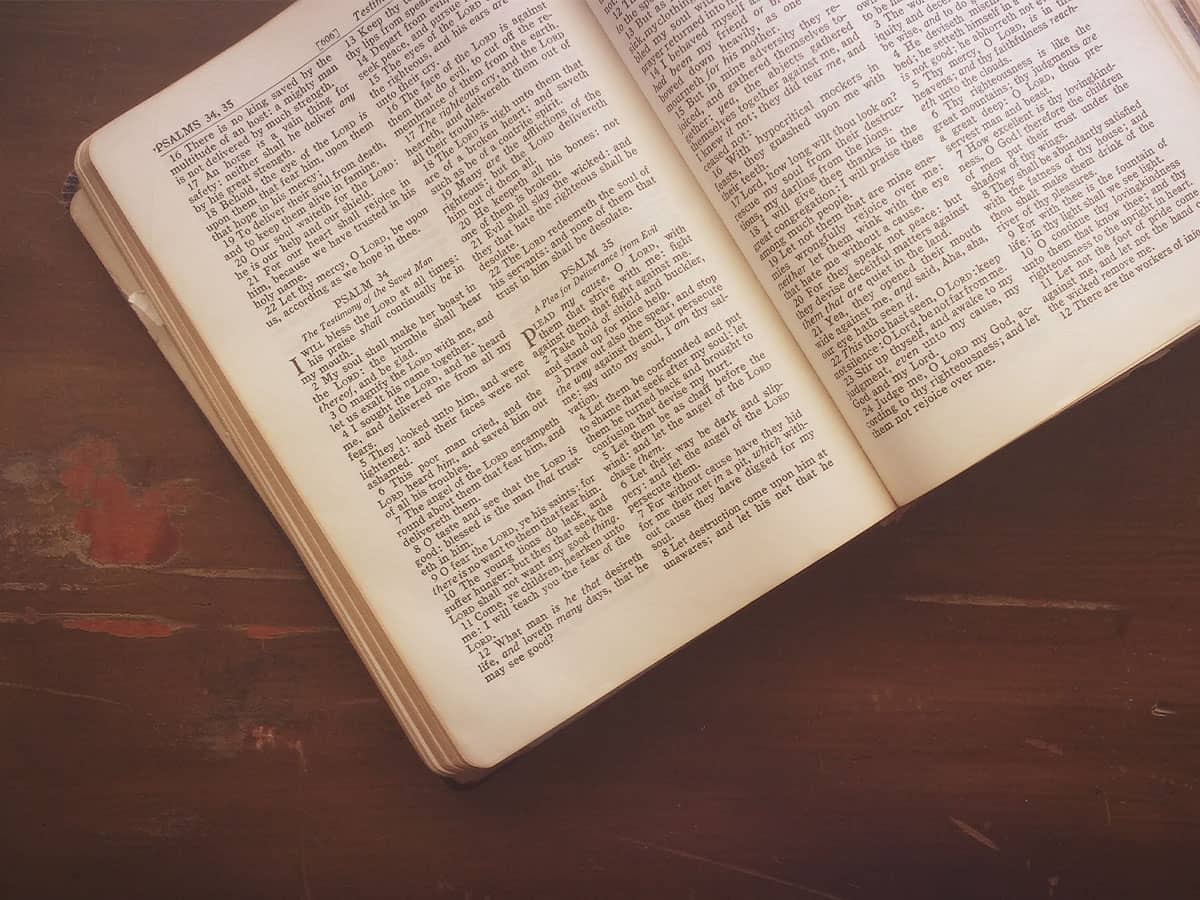
If I wanted to convince you to read the story of Jesus’ ancestor Jacob, I might tell you about the following passages.
Genesis 25
That’s the chapter where Jacob and his twin brother, Esau, are born. Baby Esau’s whole body, the Scripture says, “was like a hairy garment,” which gets the gold medal for funniest description of an ancient infant. Baby Jacob, we learn a verse later, comes out holding onto Esau’s heel, catching a free ride out of the womb and giving us a clue of how Jacob will live his life, using other people for his own personal gain.
Genesis 27
That’s the chapter where we see just how sinful this second-born son was. Jacob’s father, Isaac, is visually impaired, no longer to legally drive his camel around Canaan. So, what does Jacob do? The unthinkable. Urged by his mother while his brother is off hunting, Jacob dresses up in Esau’s clothes (I picture a camo hat and a grubby t-shirt with a giant eagle on it), covers his smooth arms in goat skin (like you do), and hustles his aged father into giving him Esau’s blessing. You think your family is dysfunctional…
Genesis 28
That’s the chapter where God appears to Jacob at the top of a stairway to heaven circa 1800 B.C., an image used in Led Zeppelin’s hit song circa 1970 A.D. What shocks Jacob is that God would appear to him in some random spot in the hill country of Canaan. What shocks me is that a sinless God would appear to a sinner like Jacob anywhere at all.
Genesis 29
That’s the chapter where the deceiver gets deceived. Jacob, running from Esau’s rage, moves in with his Uncle Laban. When Laban’s shapely daughter, Rachel, catches his eye, Jacob spends seven years to get her hand in marriage. On the wedding night, however, Laban sends Rachel’s older sister, Leah, into Jacob’s tent, a tiny detail that Jacob doesn’t figure out until morning light. If reality television existed, this moment would have been the promotional trailer—“When morning came, there was Leah!” (Genesis 29:25). To this day, I wonder how dark the night or, more likely, how drunk Jacob was for the ol’ wedding night swap to work.
Genesis 30
That’s the chapter that I call Baby Momma Karma Drama. Jacob ends up marrying Leah and Rachel, making them literal “sister wives.” And, just in case you were considering something similar, the story makes The Bachelor seem boring. Rachel is beloved but barren. Leah conceives like crazy but is forgotten. Both demand sex with Jacob, one to become a mother, the other to become his true lover. If you think I’m exaggerating the hot messiness of their home life, consider this quote from Leah—“‘You must sleep with me,’ she said, ‘I have hired you with my son’s mandrakes’” (Genesis 30:16). You “hired” your husband for sex? By trading your sister some plants? But in the midst of this mess, twelve sons were born—Reuben, Simeon, Levi, Judah, Dan, Naphtali, Gad, Asher, Issachar, Zebulun, Joseph, and Benjamin. If those names are new, these are the future “twelve tribes of Israel.”
Genesis 32
That’s the chapter where Jacob has fled from Uncle Laban and is about to finally come face to face with his older brother. Jacob panics, dividing his family and flocks into two groups, hoping that Esau will only be able to kill one and not the other. But before Esau arrives, a mysterious man appears to Jacob and wrestles with him for hours! Somehow Jacob knows that this is not some rogue wrestler but rather God himself in human form, so he grabs onto God and refuses to let go until he receives a blessing. And he gets it. God says, “Your name will no longer be Jacob, but Israel, because you have struggled with God and with men and have overcome” (Genesis 32:28). Ever wondered where the name Israel, the Israelites, or the modern nation of Israel comes from? Right here.
There’s more to this story, but if I wanted to convince you to about Jacob, I would tell you the page-turning tale of a sinfully smart man with a very hairy brother who tricked his blind father, saw a stairway to heaven, got duped into marrying his fiancé’s sister, oddly fathered the twelve tribes of Israel, and literally wrestled with God.
Matthew 1
Or I would tell you about Matthew 1. The epic first page of the history of Jesus. Have you ever read that chapter and gasped?
“This is the genealogy of Jesus the Messiah the son of David, the son of Abraham: Abraham was the father of Isaac, Isaac the father of Jacob…” (Matthew 1:1-2).
Jacob?! Jesus is from the family tree of Jacob?! The same guy who deceived his brother and his father and his uncle is the ancestor of the Only Begotten Son of our Heavenly Father? Yes. The first words of the New Testament want you to know that.
And it is really good news.
That means that Jesus is not ashamed to be associated with sinners. Real sinners. Embarrassing sinners. Almost hard-to-believe-they-are-that-bad sinners. He doesn’t keep his scriptural distance from train wrecks like Jacob, the liar. Or Matthew, the tax collector. Or you.
I don’t know which sins make you feel less than adored by Jesus. Maybe it is that sinful habit that you hate so much but keep finding yourself running back to when you are stressed (anger? alcohol? controlling behavior?). Or maybe it is a one-time choice that made years ago, the sin that holds onto your soul like Jacob grasping Esau’s heel (an abortion? the divorce? the thing you didn’t say before dad died?). The more you think about yourself, the less lovable you feel.
But are you really worse than Jacob? I doubt it. And even if you were, even if you deceived your father and your mother, even if you slept with three sisters instead of just two, even if your sins would make Jacob’s story look like the Disney Channel, the good news of the gospel would still stand: “Christ Jesus came into the world to save sinners—of whom I am the worst” (1 Timothy 1:15).
Jesus came into the world to save real sinners. Like Jacob. Like me. Like you.
Thank God.

